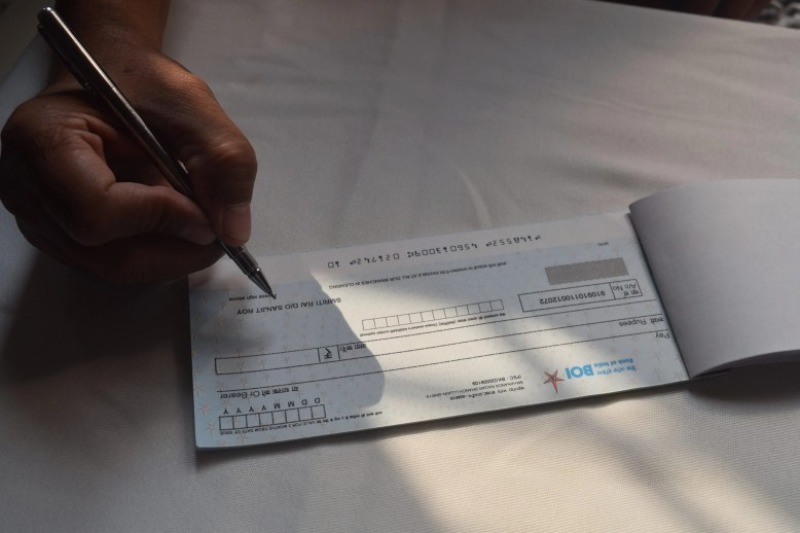Wire Fraud – The Most Deceptive of All Frauds
Both wire fraud and mail fraud are considered federal crimes, with the Department of Justice asserting jurisdiction over the crimes on the grounds that the fraudulent activity effectively crossed state lines through the use of interstate wire communications or the use of the services of the United States Postal Service in the commission of the crime.
The Department of Justice and the Federal Bureau of Investigation are normally responsible for investigating and prosecuting wire fraud crimes. However, a person who commits wire fraud may also be in violation of state and/or local laws and, as a result, may be arrested and prosecuted in state criminal courts. In the criminal justice system, wire fraud is defined as any act or attempt to commit fraud with the assistance of some form of electronic communication (e.g., telephone, internet, etc.).

Title 18 of the United States Code outlines the laws that apply to the commission of both wire fraud and mail fraud. One of the most common wire fraud schemes is phishing scams, which involve the attempt to fraudulently obtain a person’s personal financial information in order to steal or steal someone’s identity.
The following are the elements that must be present in order for an act to be classified as wire fraud: when committing wire fraud, the perpetrator must have had the intent to defraud someone; it is not possible to commit the crime by accident. Interstate wire communications were used in the course of the fraud. It was reasonable to anticipate that the use of interstate wire communications would be a necessary component of the fraudulent scheme’s implementation.
If you’re talking about the wire fraud statutes, the definition of “interstate wire communications” is extremely broad, as you might expect. It can be composed of the transmission of words, images, or sound. It can be accomplished through the use of a landline telephone, a cell phone, a computer, or a publicly accessible internet service provider (such as an internet service offered at a public library or wi-fi services offered at a restaurant or retail store).
Telemarketing schemes and online phishing scams are two examples of wire fraud that are frequently encountered. Fraudulent use of emails with the intent to obtain the email recipient’s personal information, such as their bank account numbers, or identity information, such as their Social Security number, is known as phishing.
Fraud is a word that gets thrown around a lot, but what does it really mean? Fraud can encompass any crime where the perpetrator uses deception as their modus operandi for personal gain. Contrary to popular belief, fraud victims are not greedy people looking for a get-rich-quick scheme, elderly lonely people, or gullible individuals. Anyone can fall victim to fraud, especially a well-planned and sophisticated one with a convincing story. Therefore, it would be best to learn the signs to sense a fraud scheme from a mile away.
What is Wire Fraud & The Various Elements it Entails

Wire fraud is a type of fraud that uses telecommunications or the internet to lure victims into giving out their personal/financial information. This type of crime uses electronic media, including telephone or fax machines, email or social media, or SMS and text messaging.
This type of criminal activity can take advantage of any and all forms of electronic media, including the telephone or fax machine, email or social media, as well as SMS and text, messaging, among others. Wire fraud is a type of fraud that involves communications that take place across state or national borders, and it is punishable by steep fines and prison sentences.
- An act or omission; is where the perpetrator withholds information to lure the victim into the scheme or exaggerates information to make something more than it is.
- Purposeful deceit and concealment; The perpetrator knowingly scams the victim by introducing “fake investments” to them.
- A victim suffers a loss while the perpetrator gains a personal or business advantage.
Those who commit fraud generally do so because there is opportunity, pressure, and rationalization. Therefore, you need to be aware of the presence of these elements to minimize the risk of fraud.

The following are the key elements of wire fraud, according to the United States Department of Justice Criminal Resource Manual Section 941.18 U.S.C. 1343:
(1) that the defendant voluntarily and intentionally devised or participated in a scheme to defraud another of money; (2) that the defendant did so with the intent to defraud; (3) that it was reasonably foreseeable that interstate wire communications would be used; and (4) that interstate wire communications were in fact used. It is a federal crime punishable by up to 20 years in prison and fines up to $250,000 for individuals and $500,000 for organizations if they commit wire fraud.
A charge can be filed only five years after the occurrence of the wire fraud unless the fraud was directed at a financial institution, in which case the statute of limitations is extended to ten years. A prison sentence of up to 30 years and a fine of up to $1 million can be imposed if the wire fraud is related to special circumstances, such as a presidentially declared state of emergency or the targeting of a financial institution.
To be convicted of wire fraud, a person does not need to have defrauded anyone or personally sent a fraudulent communication in order to be found guilty. It is sufficient to establish the intent to defraud or the knowledge of fraudulent communications being sent in order to establish liability.
Prior to the invention of the internet, fraudsters had to rely on the telephone and make hundreds of calls in order to catch the attention of an unsuspecting, gullible retiree or lonely heart.
Even though the old-fashioned phone call is still used to contact prey, with the incredible power of the internet to find potential victims, a fraudster’s work can be completed online with a few fabricated photos, a story of woe, and a promise of untold riches or everlasting love—all of which can be written with poor grammar and spelling. If you receive such messages or solicitations to send $10,000 to an unknown sender, delete them as soon as possible. Be careful not to become a victim of wire fraud.

Typical Examples Of Wire Frauds
Despite the fact that it is one of the oldest internet scams in the book, there are still consumers who fall prey to this rip-off or a variation of it on a consistent basis. In any situation, whether you receive an email from a wealthy traveller who needs assistance returning to the United States or an email from your long-lost cousin who claims to be in an emergency situation, you should never wire money to someone you do not know and have never met.
Once you’ve wired money (especially internationally), it’s virtually impossible to get your money back or track down where it came from. If you’re concerned about your cousin, you should conduct a separate investigation. The majority of the time, they’ll be safe at home, and you can notify them that their email has been compromised.
• Wire Frauds Through Emails
The Nigerian prince scam, for example, is a common example of wire fraud. When a scammer sends an email claiming to be a Nigerian prince who is down on his luck in some way, usually exiled, and is unable to access the fortune in his Nigerian bank account, the recipient should be suspicious.
He claims that he requires the target to hold his millions on his behalf, and he promises to compensate the target handsomely in return. The goal of the scam is to obtain the target’s financial information, which will then be used by the scammer to gain access to the target’s financial resources. Unsurprisingly, one of these alleged “Nigerian Princes” was recently apprehended and charged on December 28, 2017. It was revealed that he was a 67-year-old man from Louisiana, much to the dismay of the public. This particular variant of the scam first appeared in the 1980s, and it has resulted in millions of dollars in losses for American consumers.
Since the invention of the internet, one of the most common wire fraud scams has been the practice of sending an email to someone in which the fraudster claims to be in possession of millions of dollars but is unable to access them directly due to legal or political constraints on their part. When they receive an email, they ask the recipient to assist them by accessing the funds on their behalf and transferring the funds to a different account where the fraudster can gain access to them. Because of their assistance, the fraudster promises to share a large portion of the funds with the email recipient in exchange for their cooperation.

• Mail Fraud
The following is an example of a common mail fraud scheme: If you are the winner of sweepstakes or contest, you will receive a check for $5,000 in the mail, as well as a letter explaining that you have won (a red flag warning should be the fact that you do not recall entering the sweepstakes or contest in question). The check appears to be legitimate, despite the fact that it is not. This scam frequently involves the use of a check written on an account that has since been closed as part of the scheme.
The letter that comes with the check informs you that you must pay a $500 processing fee in addition to the check. It is common for it to request that you send the fee through a payment system such as Western Union or Money Gram.
You happily deposit the check into your bank account and send off the $500 fee, as requested, under the impression that you have made a profit of $4,500 overall. Unfortunately, a few days later, you receive a call from your bank informing you that the $5,000 check you deposited was not valid and that your account has been debited for the amount you deposited.
Instead of being $4,500 in the black, you are now out the $500 that you sent to the fraudster, as well as any fees that your bank may have incurred as a result of the deposit or processing of the fraudulent check. The scam is commonly thought of as mail fraud, but because it involves the use of an online payment system such as MoneyGram, the crime is also considered to be an act of wire fraud.

More Examples of Wire Frauds in 2022
Of course, there aren’t any millions of dollars involved in the email scam. Scammers use emails to obtain private financial information about their victims, such as their date of birth, bank account numbers, and Social Security number. The fraudster then uses this information to steal money from the email recipient’s bank account.
Another possibility is that the scam will be used to commit the crime of identity theft. Using the recipient’s personal information, the fraudster can apply for credit cards or a major loan in their name after successfully obtaining the recipient’s information from the recipient. Wire frauds are becoming more sophisticated because scammers have gotten more innovative because of innovations and technology. You have probably familiar with the Nigerian prince scam.
The Nigerian scam follows the typical format where the scammer usually reaches out to target victims through emails. First, he will pose as a Nigerian prince in distress, exiled, or for some reason, his bank accounts are frozen. He will then ask to transfer some funds to the target’s account for safekeeping. This ploy is to obtain the target’s financial information, which the scammer uses to steal from them.
The Many Ways To Avoid Various Types of Wire Frauds…
Always remember there is no such thing as a Nigerian prince in trouble. Never wire money to a stranger even if they show “proof” of identity. Once you wire the cash, the transaction becomes irreversible. Give relatives or friends a heads up and let them know their email has been hacked. Keeping an eye on your email address is a good habit to have, but it isn’t enough.
What if the vendor’s email account has been compromised, and they are sending you an email from the compromised inbox? As a result, you should always call to ensure that the request is legitimate.
Lost money to online fraud? We will recover your funds !

 Step 2
Step 2
Also, call the phone number listed in your vendor management system rather than the email signature, as they may be able to change the email signature as well. It is recommended that you go above and beyond to verify the authenticity of any requests to change bank information, phone numbers, or even mailing addresses for anyone, not just vendors, according to a general rule of thumb. This includes employees, partners, and, in general, anyone with whom you conduct business.
Even Facebook and Google were duped out of $123 million in fraud. As much as you might think it was a sophisticated attack, it was actually a simple ruse where the scammer sent them fake bills, and they paid their “debt.” If an offer appears to be too good to be true, it most likely is. Never put your money into a company, a product, or a piece of real estate that does not have a good reputation. If you have any doubts about the legitimacy of the offer, you should investigate further.
Check the contact’s name, professional background, and company information to make sure everything is correct. Contact the individual over the phone, and if they refuse to speak or do not answer, it is likely that they are a victim of a scam. When in doubt, consult with a financial expert for a second opinion on your decision.
• Fake Buyers
Swindlers browse online ads and newspapers for their targets. Then, they contact those stores, pretending to be an interested buyer. Then, they overpay with a counterfeit check and instruct you to wire the balance. Other times, they may send a check for the correct amount, then back out of the deal and ask for a refund.

Ways not to fall victim to the fake buyers’ scam
- Local buyers are a safer bet than those you will find online.
- Do not accept overpayment.
- When possible, accept cash.
- Don’t pay anything until you have verification that the check has cleared.
Fake lotteries
You receive a notification indicating you’ve won a huge sum of money. Then, you’re told to send a wire transfer to cover a “processing fee” or vague taxes. Once you send the money, the scammers block all contact with you.
Protect yourself from such scams by never paying or sending money to strangers who claim you have struck gold.
Advance-fee loans

Fraudsters pose as loan agencies, and when you apply for a loan, they ask you to wire an amount of money to process your application. However, once you send the money, you never receive the loan. In addition, the crooks have your bank account information and may rob your account.
How to protect yourself: Never pay for a loan or credit approval. Legitimate lenders only charge application, appraisal, or credit report fees after the loan is approved and paid.
“Relatives” in need of assistance
You receive a desperate phone call, email from fraudsters posing as your relative. They say things like,” He was arrested overseas or mugged.”
How to protect yourself:
- Confirm the story with your relative.
- Go further by contacting other families to make sure the story checks out.
- Refuse to send money via wire transfer.
Contact Roselanegp Ltd now!
If you or someone you know is a victim of wire fraud, we ask that you act fast by contacting us because the time frame is essential and every day counts. Luckily for you, we have wealth recovery professionals on our team who know exactly how to get your money back in the shortest time frame. So contact us with details of your transactions and dealings with the scammers and leave the rest to us. We will recover your funds
Wire fraud is the type of scam that uses false pretenses and manipulation to coerce someone to send a wire transfer.
Never send money to strangers even if this person claims to be famous or has fallen on hard times or unexpected circumstances; this could be a tactic used to manipulate you.
Any of the following “red flags” should signal a scam:
Con artists often win their victims’ confidence by sending a fake check for more than the purchase amount or to cover so-called processing fees, shipping costs, or other expenses. It may be a cashier’s check, personal check, or money order.
Note the following red flags;
Ads soliciting for a “secret shopper” (a frequent scam tactic)
Out of the ordinary offers
You are asked to transfer money via Western Union or Moneygram.





